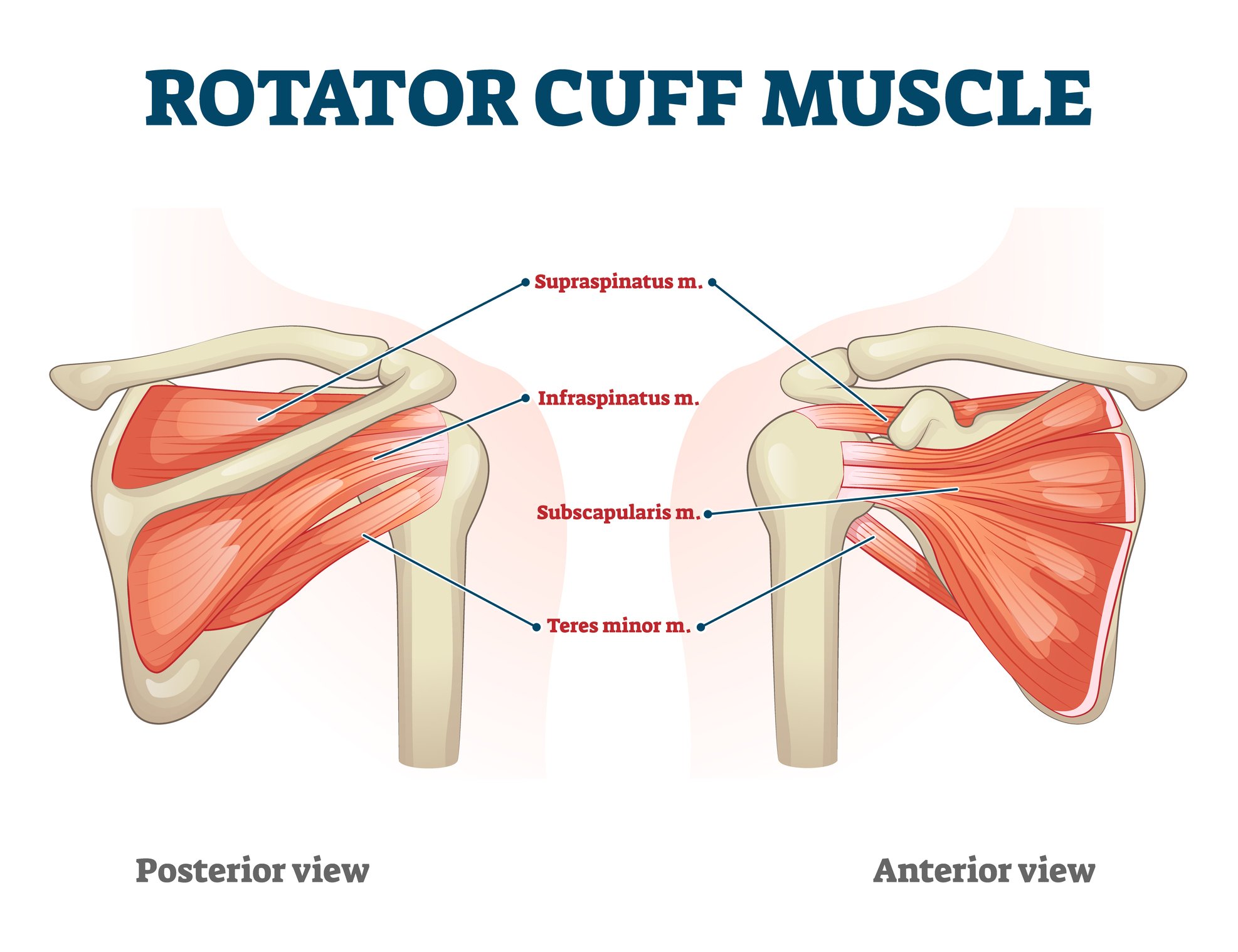Rotator Cuff Tears
What is the rotator cuff?
The rotator cuff is a group of four muscles and tendons that surround the shoulder joint, providing stability and allowing the shoulder to move in different directions. A rotator cuff tear occurs when one or more of these tendons become torn or frayed.
Symptoms of a Rotator Cuff Tear
The symptoms of a rotator cuff tear may include:
What is a rotator cuff tear, and how does surgery fix it?
Pain in the shoulder, especially when lifting the arm
Weakness in the shoulder
Limited range of motion
A popping or clicking sound when moving the shoulder
Difficulty sleeping on the affected shoulder
Causes of Rotator Cuff Tears
Rotator cuff tears can be caused by:
Age-related degeneration of the tendons
Repetitive overhead movements, such as those performed in certain sports or occupations
A traumatic injury, such as a fall or a motor vehicle accident
Diagnosis of Rotator Cuff Tears
To diagnose a rotator cuff tear, your doctor will perform a physical examination of your shoulder and may order imaging tests such as an X-ray, MRI, or ultrasound.
Treatment Options for Rotator Cuff Tears
Treatment options for rotator cuff tears depend on the severity of the tear and the patient's overall health. Mild tears may be treated with rest, physical therapy, and anti-inflammatory medications. More severe tears may require surgery.
Rotator Cuff Repair Surgery
How is rotator cuff surgery performed?
Rotator cuff repair surgery is a procedure in which a surgeon repairs a torn rotator cuff tendon. The surgery is typically performed on an outpatient basis and can be done arthroscopically, using small incisions and a camera to guide the surgeon.
During the surgery, the surgeon will reattach the torn tendon to the bone using stitches or anchors. The patient may need to wear a sling for several weeks after the surgery and undergo physical therapy to regain strength and mobility in the shoulder.
Recovery Time and Outlook
What is recovery like after rotator cuff surgery?
Recovery time and outlook for rotator cuff repair surgery depend on several factors, including the patient's age and overall health, the severity of the tear, and how well the patient follows their postoperative care instructions. In general, most patients can expect to return to normal activities within six months to a year after surgery.
How can I prepare for rotator cuff surgery?


